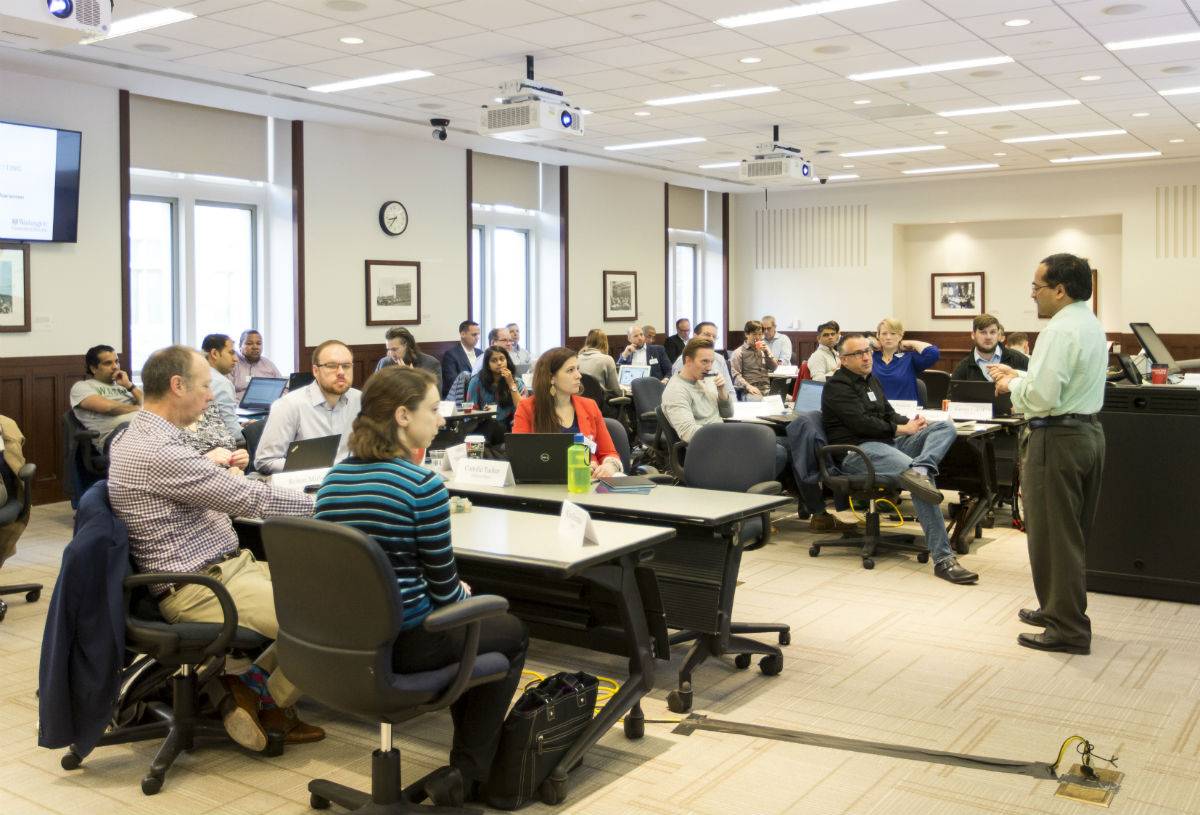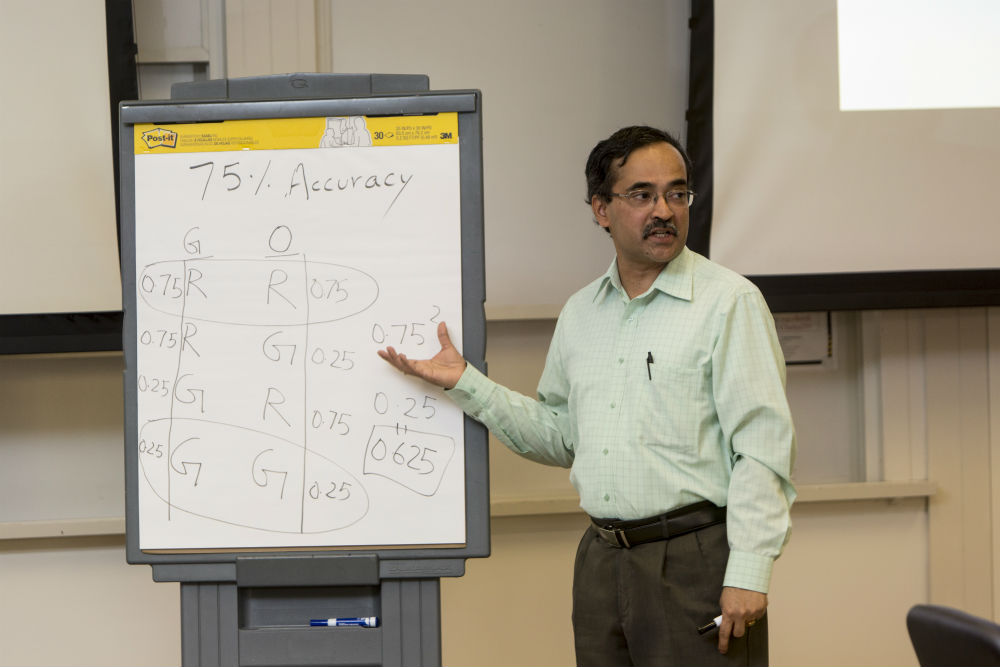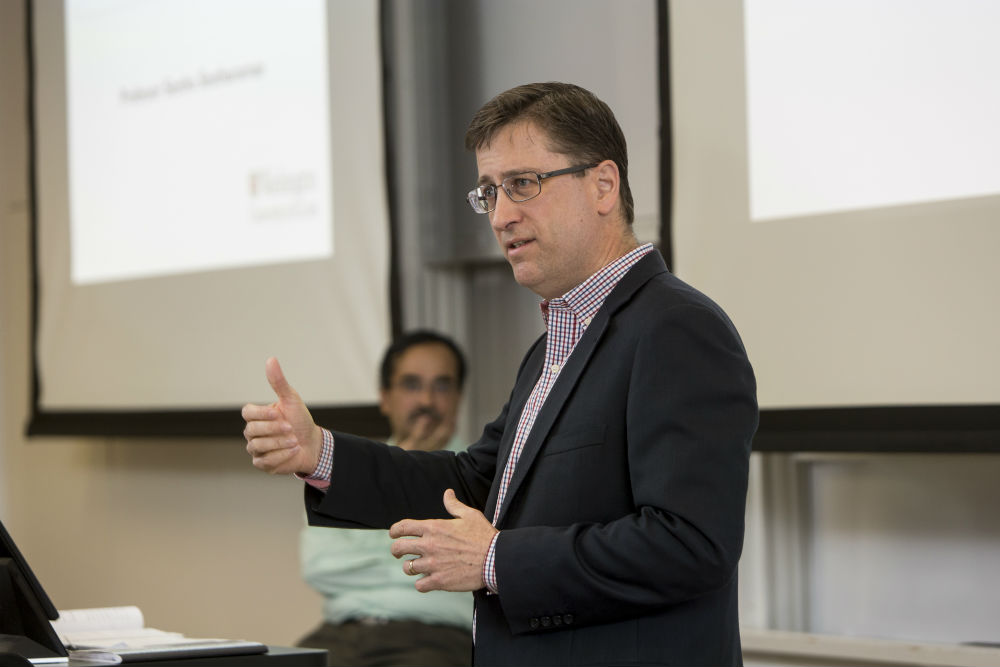Olin profs pilot values-based/data-driven course at big data center workshop
- April 22, 2019
- By WashU Olin Business School
- 2 minute read

The Center for Analytics and Business Insights, along with the Bauer Leadership Center, hosted a seminar March 26-27 on values-based/data-driven decision-making.
The seminar, which hosted nearly 50 executives from a variety of local data-centered companies—including Wells Fargo and Teradata—was a huge success.

Seethu Seetharaman, director of CABI, kicked off the event with a discussion on hypothesis testing. Seetharaman, W. Patrick McGinnis Professor of Marketing, brought statistics to life with riddles and brain teasers. With a group filled with professionals working with statistics daily, Seetharaman’s brain teasers still expanded their knowledge and truly kept them on their toes. A quick example of a brain teaser to try at home:
“A light flashes red 75% of the time and green 25% of time. You have to predict what the next flash will be. Is it reasonable to use a biased coin weighted to flip toward red 75% of the time to predict the next flash? Or is it more reasonable to just predict red?”

The answer is actually no. The likelihood of having the coin and the light flash the same color is slim because there are two separate events. The two events will only align 62.5% of the time, so it’s safer to predict red from the get-go with its 75% probability.
The first afternoon was followed up by Stuart Bunderson, director of the Bauer Leadership Center. Bunderson, George & Carol Bauer Professor of Organizational Ethics & Governance, discussed values-based decision-making, incorporating values and ethics in business, while backing them with statistical evidence.
Bunderson amusingly warned the data-focused audience, “We are now entering the domain of moral philosophy… we answer which outcomes we should be striving to achieve through discussion and mindful reflection, informed by theoretical frameworks.”
Bunderson continued, asking, “What are values?”
Values are beliefs about preferred “end states.” They can be explicit or implicit, but regardless, represent the fundamental building blocks of an individual’s character or organization’s culture.
Values are all about the why of a business: the how represents tactics and execution, the what are objectives and KPIs, while the core why are values and the mission. The why drives the what and the how.
At the end of the session, Seetharaman’s statistics-heavy lecture paired perfectly with Bunderson’s value-based message. The audience collectively resonated with the idea that a business is firmly, at its core, driven by values.
However values must guide decisions made and then must be secondly backed by statistics. You must be able to understand your KPIs while still keeping true to your business’s mission.
Media inquiries
For assistance with media inquiries and to find faculty experts, please contact Washington University Marketing & Communications.
Monday–Friday, 8:30 to 5 p.m.
Sara Savat
Senior News Director, Business and Social Sciences
